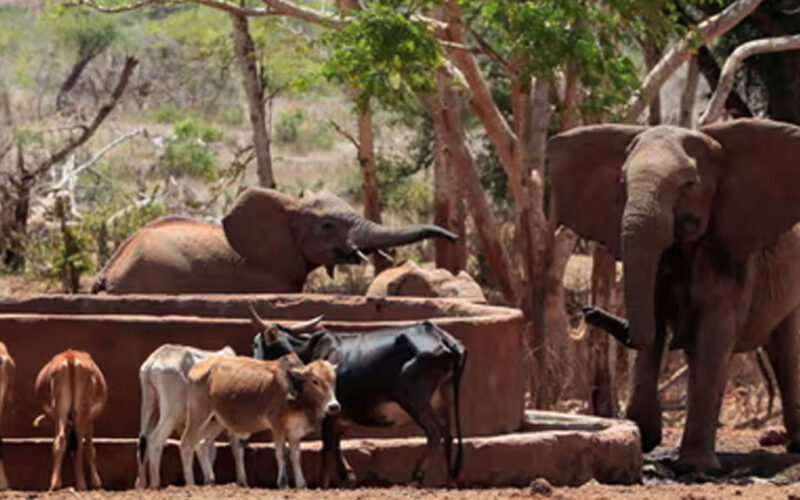Martin Endjala
KABBE North Constituency residents in the Zambezi region are pushing for a policy that will allow them to catch crocodiles and hippopotamuses every year to lower their population and eliminate human-wildlife conflicts.
The residents appealed to the Parliamentary Standing Committee on Natural Resources on Tuesday during a public session.
The parliamentary committee is touring the region for community input on the critical subject of human-wildlife conflict.
Human-wildlife conflict has already been discussed in the National Assembly after various communities nationwide complained about wild animals killing them and their cattle and damaging their houses.
Kabbe residents live near the river, where crocodile and hippopotamus populations are increasing, forcing wild animals to fight with humans for resources such as water and fish.
Alfred Ilukena, a member of the village, remarked that the concept of conservation has been misconstrued to mean tourism, which has allowed troublesome animal populations to flourish.
“Human and animal populations are growing, but land size remains constant. As a result, in the same environment, we have competing interests. If we wish to coexist with animals, we must restrict their numbers, particularly crocodiles and hippos, which are abundant in this region. The Environment Ministry should develop a policy that allows for the annual harvesting of crocodiles, which have significantly increased in our rivers,” he recommended. He pointed out that crocodiles are to blame for the area’s deaths of humans and cattle.
“Crocodiles lay 30 to 60 eggs per nest on average, and their number is increasing; at the same time, when their food becomes depleted in the river, they are forced to look for food somewhere,” he said.
Ilukena added that while Namibia is a signatory to conventions that call for the protection of endangered species, including pressure from international organisations, deliberate efforts should be made to protect the welfare of communities that such problem animals directly threaten. He emphasised that seals are being culled because of the harm they pose to marine resources, and he questioned why the government is not doing the same with other troublesome animals whose populations are growing.
“International organisations aren’t coming to our villages to see how people suffer. How can they tell us how to handle our resources? Let us be bold and implement a policy,” Ilukena added.
He stated that compensation fees for human-wildlife conflicts are insufficient, and payments are frequently delayed.
“We are also confined to crop damage caused by three problematic animals, elephants, buffaloes, and hippopotamuses.
It has since been discovered that individuals who live beyond the bounds of conservancies cannot receive compensation from the Conservancy Management Fund, which is intended to aid communities that incur losses due to human-wildlife conflict.
Agnes Kafula, Deputy Chairperson of the Committee and delegation leader, agreed with Ilukena and accused international organisations of prioritising wildlife above humans.
“When we lose a person due to human-wildlife conflict, we do not receive any support from these so-called international organisations that claim to be helping us conserve our natural resources,” Kafula added.
Tangeni Iijambo, another Committee member, requested that the community be permitted to start a crocodile farm to produce cash to help improve the area and create jobs.
“We have the Kongola crocodile project initiative, which has come to a halt and is now a white elephant; this project could have assisted in the commercial harvesting some of these crocodiles. In fact, because of their increasing numbers in Kabbe, the community may be allowed to establish a crocodile farm here,” said Iijambo. Meanwhile, Chief Warden of Wildlife and National Park Management in the Ministry of Environment and Tourism, Maani Matomola, highlighted that the government could only assist claimants once investigations have decided whether they qualify for compensation and whether the budget allows such compensation.




